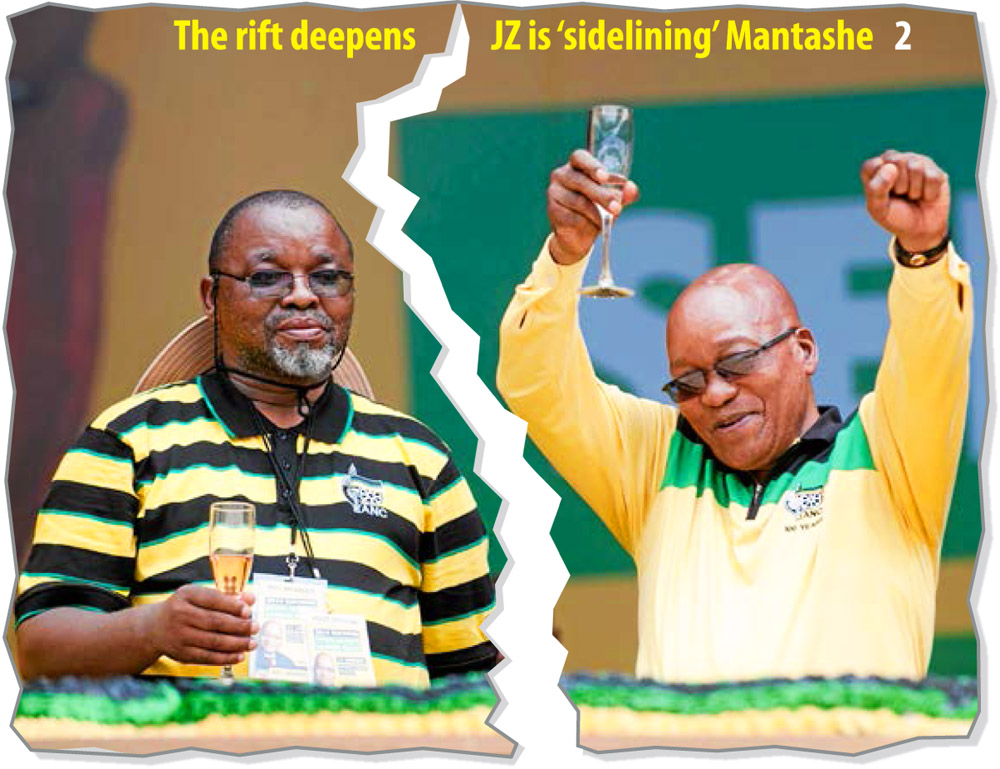No slate is expected to emerge victorious as poorly coordinated conference finally gets under way
The Mail & Guardian article “Zuma-Mantashe rift widens” is both concerning and disconcerting. It alleges to be informed by unnamed ANC national executive committee (NEC) members who are said to be concerned about a supposedly ambitious Gwede Mantashe. What is critically worrying is that, as an organisation, we are currently confronted by real challenges that place a great responsibility on us as leaders with regard to the renewal of the ANC.
There are also important organisational programmes to ensure that, as we celebrate 20 years of our democracy, we focus on making sure our government is responsive to the needs of our people and society. A distant discussion on who should be in the leadership of the ANC post-2017 is rather premature.
The M&G, in handling dynamic rumours such as this, should be circumspect. Of course it makes sensational news to be peddling either unsolicited or uncorroborated information. Unfortunately, it fails to home in on the real challenges confronting both our organisation and society, particularly at a time when our country faces economic challenges – as was outlined in the medium-term budget presented by the finance minister, Nhlanhla Nene, in Parliament last week.
The difficulty with this kind of reporting, assisted by invisible sources of course, resonates with an old political tactic called blackmail. Its intention is to conceal the blackmailer’s own personal ambitions by casting aspersions on the object and subject of their intended vilification.
In the era of the National Party, when the then prime minister Dr Hendrik Verwoerd was assassinated, the securocrats used personal information to blackmail Ben Schoeman, the transport minister, who was seen as next in line for the prime ministership, into giving up his political ambitions. Schoeman withdrew his candidacy, and thereby opened the door for John Vorster’s takeover.
Similar attempts have happened in the ANC: comrades were pressured to declare whether or not they harboured any presidential ambitions. The lessons from these experiences are that those who use these dirty tricks will stop at nothing to safeguard their own interests, even if it means the organisation pays a heavy price. Some of our good comrades are adversely affected.

The organisation is about policies and decisions taken, which the leaders must ensure are implemented. Thus, at the start of this term of government, the national officials of the ANC met the Cabinet and all provincial executives to explain that every individual in government and party structures is deployed by the ANC.
They were all reminded that it is the ANC that contests elections and, therefore, ministries should interact with the ANC. This is in line with the policy position as articulated in the Strategy and Tactics document – that the ANC is the strategic centre of power. This process of engagement was led by the ANC president.
Flowing from this, one would appreciate that this is an organisational policy outlook, instead of something that can be ascribed to individual positions and the incumbents. Members of the ANC, without regard to their deployment, account to the ANC through the party’s constitutional structures, beginning with the national officials, the national working committee, which executes on behalf of the NEC, and the national conferences.
In this context, the secretary general’s office exercises a well-thought-out and age-old practice of the ANC, which is to invite any comrade to account on mandates assigned to them by the ANC. If the secretary general’s office does not call comrades to account, it will be failing in its constitutional responsibility.
The September NEC was emphatic in its decision that there should be no debate, at present, about the post-2017 leadership of the ANC. Consequently, anyone who speaks and acts differently is doing so in defiance of the NEC decision – noting, of course, that the NEC is not only the leadership structure but also the highest decision-making body between conferences.
Members of both the ANC and the media should resist being party to attempts to blackmail certain comrades into declaring their availability (or otherwise) prematurely. Individual members have a right to elect and to be elected without feeling that their actions are untoward in the view of others in the organisation. Only in the event that a member is not eligible can he or she be barred from participating in the life of the organisation, including its leadership.
The last NEC urged us to work for unity and to make a concerted effort to rid the organisation of the things that cause division. Comrades must continue to speak freely and without fear in meetings of the organisation. We must be careful not to become a revolution that is devouring its own children.
Against this backdrop, as we close the month of Oliver Tambo, it is fitting to remember his words when he urged that we “wage a relentless war against disrupters and defend the ANC. Beware the wedge-driver, the man who creeps from ear to ear, carrying a bag full of wedges, driving them in between you and the next man, between a group and another, a man who goes round creating splits and divisions. Beware the wedge-driver. Watch his poisonous tongue.”
Gwede Mantashe is the secretary general of the ANC.